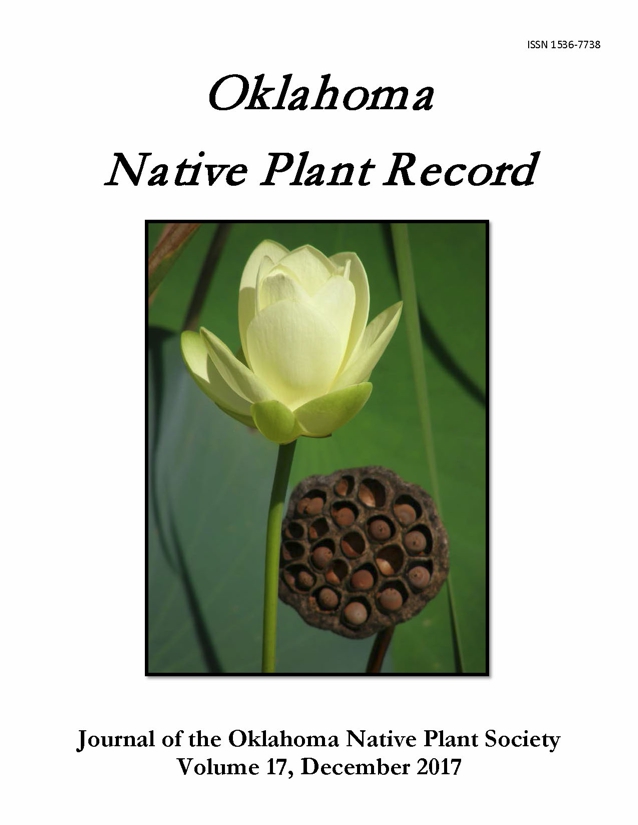Laboratory Studies of Allelopathic Effects of Juniperus Virginiana L. on Five Species of Native Plants
Main Article Content
Abstract
Juniperus virginiana L. (eastern redcedar) is known as an encroaching native plant species. It poses particular problems in the Great Plains, where fire suppression in the 20th century has led to the expansion of its population and the area it affects. There is some evidence that the genus Juniperus contains members that are allelopathic; work with western species of juniper have demonstrated negative effects of litter on seedling growth. We established laboratory experiments to test the effect of a water leachate of eastern redcedar litter (100 g litter per liter DI water; steeped 8 h) and eastern redcedar litter on the growth and germination of five native herbaceous species. We saw no clear negative effect of leachate or litter; in fact, there is limited evidence that the leachate increased percent germination, and the presence of litter may have led to greater height growth in inland sea-oats. There was no evidence of the litter or leachate acidifying the soil, at least over the short course of the experiment. It is possible the main negative effect of the presence of eastern redcedar on herbaceous species is through light or nutrient competition by mature trees. We are repeating this study in a field setting.
Article Details
Articles (c) The Authors
Journal compilation (c) Oklahoma Native Plant Society
Except where otherwise noted, this work is licensed under a Creative Commons Attribution-NonCommercial-ShareAlike4.0 International License, (CC BY-NC-SA 4.0) https://creativecommons.org/licenses/by-nc-sa/4.0/, which permits unrestricted use, distribution, and reproduction in any medium, provided the original work is properly attributed, not used for commercial purposes, and, if transformed, the resulting work is redistributed under the same or similar license to this one.

